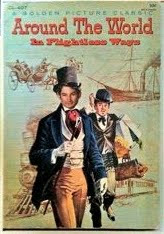Melbourne is hosting Grand Prix racing today and over the next few days. I don’t have much interest in motor car racing but the noise is exciting and it was impossible to resist going to have a look. This however proved to be more difficult than I imagined. The course of the race is on public roads that have been sectioned off. I thought this would mean that members of the public would be able to watch the cars zip past from not too far away. However, the entire area has been fenced off and one has to buy a ticket, which start at $40 and go into the hundreds, in order to get in for a good view. I was appalled by this. Sure, if it had been a private racetrack then people can be charged for entrance, but it is a public road they are using. Public roads belong to the public and they ought to be able to see the race. To section off some public roads so that people can’t use them and also to cause further traffic congestion for the benefit of a private profit-making enterprise is unjustified. No doubt the local politicians who okayed this decision got free passes to the event.
I made this argument to a policeman who happened to be standing next to me as I tried to get a look, but he was unresponsive. Anyway, here is the view I had - I have zoomed way in and could barely see the cars. In the hotel where I am staying, the room next to mine is occupied by a professional photographer from Germany who is here to photograph the race. Hopefully for him, he gets better shots than me.



But if it's a way of putting some cash into the public coffers by charging F1 for the use of the streets, as well as generally bringing in money for the local economy, and it only occupies a few days a year, isn't that a decent argument? Of course the politicians will enjoy the free passes, hospitality tents etc but such as life and in any event and as I said it's a boost for the local economy, so what's the problem?
ReplyDeleteBTW any thoughts on this appreciated http://timesandotherthings.blogspot.com/2010/02/employment-and-religious-beliefs.html
Not convinced by that, though the general form of argument is right. Burdens on some can be justified by the public good but only in some cases. The burdens can't be too severe, and can't always be placed on the same people, and the benefit to the public good must be real and weighty enough. I doubt all these conditions would be met in this case, even if it is only to block access to the roads for a few days a year.
ReplyDeleteI think with public goods like roads and parks, where the expectation is that they will be accessible by all, the benefit has to be very weighty and perhaps distributed to all.
Does the increase in revenue benefit those who are denied access? If not, then they can justifiably feel aggrieved. If it does benefit them we might still worry at the paternalism, but I suspect it does not benefit them but benefits the rich friends of politicians and the politicians themselves.
Even if it is for the general public good, there's the worry that the decision was not really in the public interest but for the benefit of the politicians who received free passes. You can't just say 'such is life'. Too much conflict of interest there. Mind you, I just made up that about the free passes. Probably true though.
When Jeff Kennett poached the F1 race from Adelaide (sometime in the early 90s), it was set to run through Albert Park. I attempted to go on a protest march against this destruction however daylight savings kicked in that morning so my mate & I arrived at the wrong time. We proceeded to get drunk and stumble around yelling by ourselves for a few hours: that showed 'em.
ReplyDeleteGreat philosophical debate,but for my money Muntgoat wins hands down!
ReplyDeleteI doubt it's that much disruption. It might put some time on someone's journey for a few days each year but that isn't so burdensome is it? If the event is a regular one then they have all year to plan for those few days too.
ReplyDeleteIt can surely be an overall benefit for the city if it is shown that the F1 brings in a lot of money for the local economy - which as you know won't just benefit the rich, but anyone who provides services to it (this is distinct from the Olympics, which always loses huge amounts of money for the host city, as I understand it F1 events are much more profitable).
As to the politician's back pocket, you are in danger of committing the motive fallacy. Just because the Politician had a personal gain does not mean that the decision can't be the right one, in this case in the public interest. Of course, if a politician is being directly bribed they should be out of office. But this isn't quite in that league, is it?
James, it was a huge disruption: traffic jams, closed roads, delayed and re-routed trams. How can you say you doubt it was much disruption when you haven't seen the evidence?
ReplyDeleteStill not convinced the economic benefits are worth it. They have to be pretty large to justify depriving people of something they normally have a right to.
My point about motives is relevant. If the politicians are getting free passes then that is evidence that the decision was probably not in the public interest.